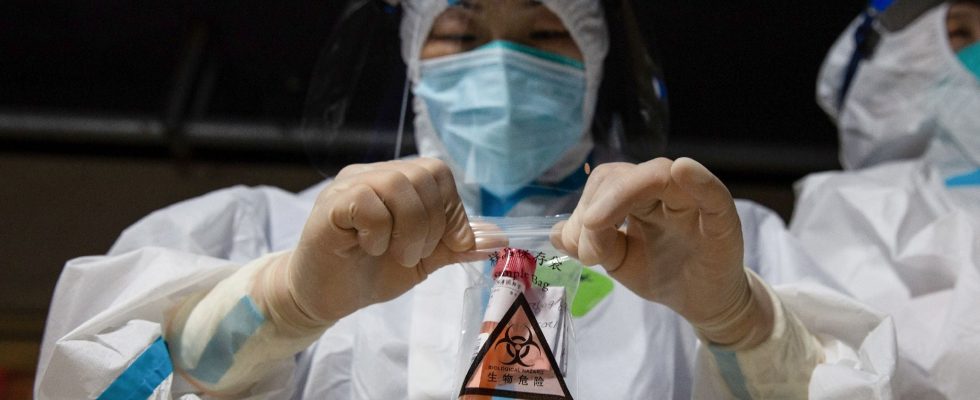It’s a rare image, in a country where censorship of scientists is common. On April 27 in Shanghai, Zhang Yongzhen, the first virologist to have disclosed the Covid-19 genome in a global database, organized a demonstration in front of his research laboratory, officially closed for “renovation”.
While the scientist went there like every day, he discovered to his amazement that the installation had been sealed off, one of his colleagues having even been locked inside, according to Chinese media. The next day, Zhang Yongzhen decided to sleep outside in front of the establishment’s gates as a sign of protest. “I am still waiting for the problem to be resolved, but no one has come to resolve it,” he reportedly told a state press agency on April 29.
In a statement posted on his social media account on May 1, Dr. Zhang said his team had been allowed to resume research, but said discussions were underway to resolve a dispute over payment for his previous work. While there was no immediate comment from the Shanghai government, Southern Weekenda state-controlled Chinese media outlet, quoted an official from the city’s public health center – which owns the laboratory – as saying that the contract with Dr Zhang had ended in October 2022, the report said. New York Times.
Muzzle the researcher
For Edward Holmes, a long-time collaborator of Zhang Yongzhen cited in Nature, this closure is, however, a sign that the Chinese government is seeking to muzzle the researcher, the latter having published data during the pandemic without authorization from the authorities. Before 2020, Zhang had a large research network and collected samples from animals and people to study viral evolution, Holmes says. But since 2020, Zhang’s work has largely consisted of analyzing previously collected samples, and Holmes’ own collaboration with Zhang has proven less prolific, the scientist assures. According to the Dimensions database, Zhang indeed co-authored 5 research articles in 2018, 9 in 2019, and 18 in 2020. But this number dropped to 3 in 2021 and 4 in 2022. Zhang also co-authored 6 articles in 2023, but none contained original data.
Students of Dr. Zhang also published in a message on the Chinese social network Weibo – since deleted – the series of challenges faced by the scientist. They say the Shanghai center, affiliated with the city’s Fudan University, never officially recognized Zhang’s employment, leaving him without social security or medical benefits. The establishment also allegedly prematurely ended a five-year cooperation agreement with the researcher.
“That a leading scientist in his field, a person who has made a contribution to the country and humanity has come to this is truly sad and scary,” the post read, reports CNN. Contacted by the American media, Zhang Yongzhen assured that the research of a dozen students was affected by the closure of the laboratory, adding that it was “embarrassing” to say more at this time.
